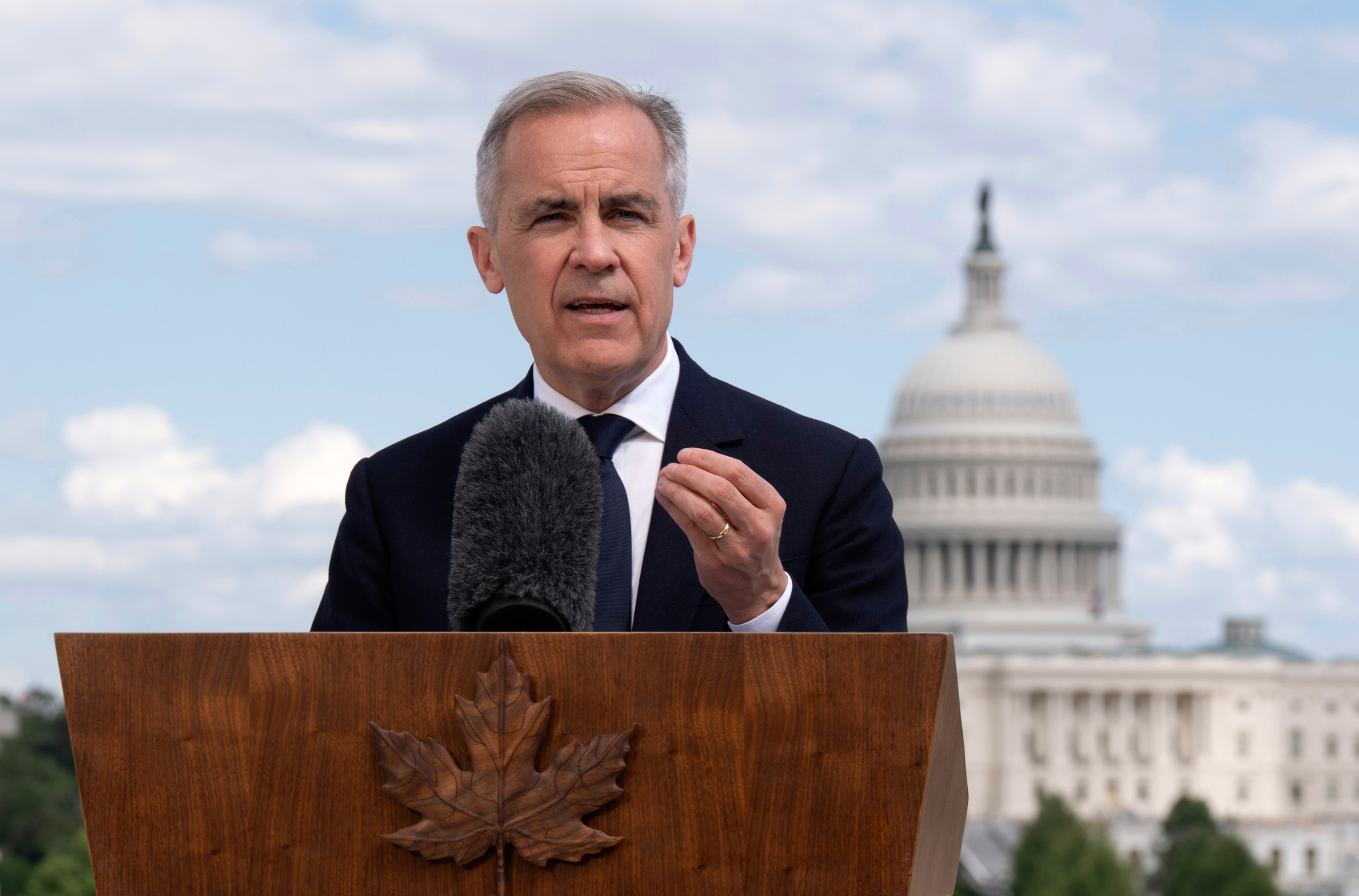Canada's Minister of Finance and National Revenue, Francois-Philippe Champagne, stated on 29/6, "The cancellation of the digital services tax will facilitate negotiations for a new economic and security agreement with the US, thereby strengthening efforts to create jobs and bring prosperity to Canadians."
"Today's announcement will support the resumption of negotiations to reach an agreement before 21/7/2025, as agreed at the G7 Summit in Kananaskis," Canadian Prime Minister Mark Carney said in a statement on 29/6.
 |
Canadian Prime Minister Mark Carney holds a press conference at the Ottawa embassy in Washington on 6/5. Photo: AP |
Canadian Prime Minister Mark Carney holds a press conference at the Ottawa embassy in Washington on 6/5. Photo: AP
This marks a significant shift for the Canadian government. Previously, Canadian officials had insisted they would not suspend the digital services tax, despite strong opposition from the US.
The Canadian government had planned to implement a 3% tax on US tech companies like Amazon, Meta, Alphabet, and Apple starting this week. This tax, previously approved, targeted digital service providers with annual revenue from Canadian users exceeding 20 million CAD (14.5 million USD).
On 27/6, Trump posted on Truth Social: "We have just been informed that Canada - a nation that is very difficult to deal with - has announced it will impose a digital services tax on American technology companies. This is clearly an attack on our country."
The US president stated that due to this issue, the US would "immediately terminate all trade negotiations with Canada" and would "inform Canada of the import tariffs they will have to pay to do business with the US within the next 7 days."
Canada is currently the second-largest trading partner of the US, after Mexico. It is also the largest importer of US goods. Last year, according to US officials, Canada purchased 349 billion USD worth of US goods and exported 412 billion USD to the US.
Ha Thu (Reuters)












